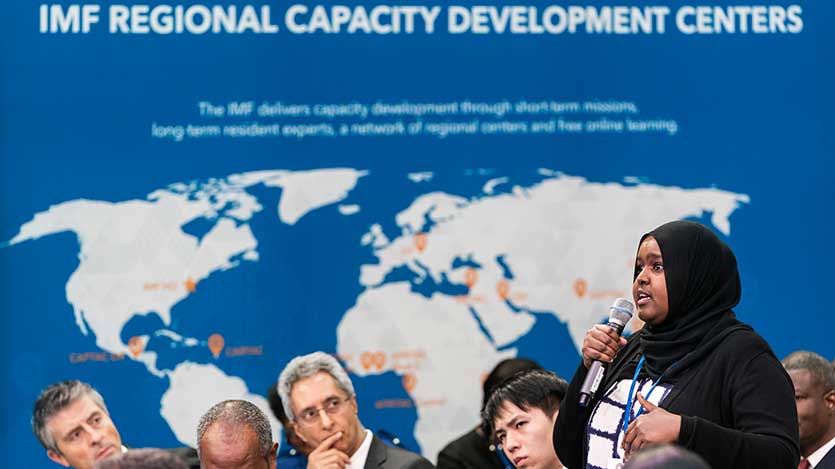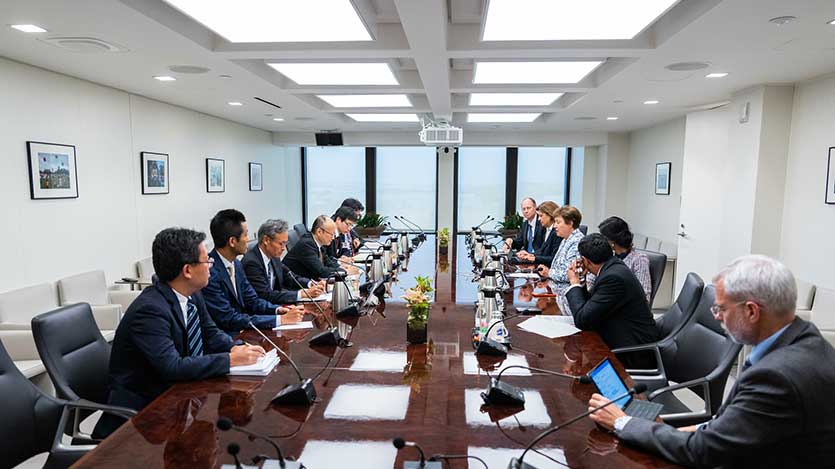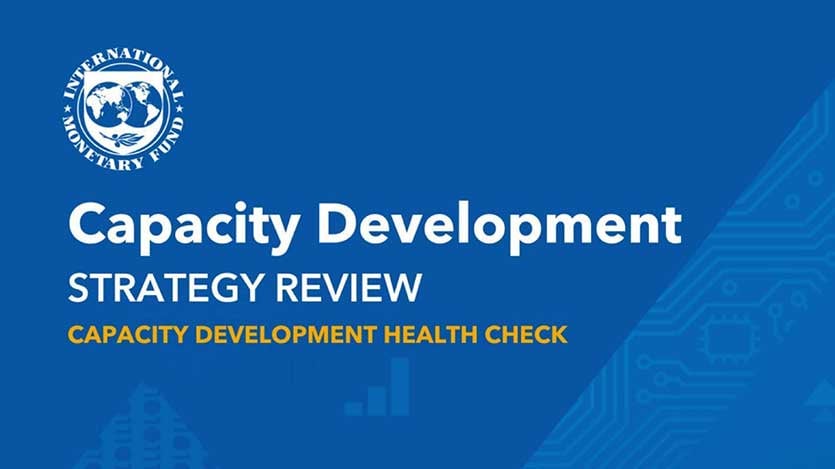Capacity Development
What We Do
Strengthening the capacity of institutions—including central banks, finance ministries, revenue administrations, statistical agencies, and financial sector supervisory agencies—results in more effective policies and greater economic stability and inclusion. The IMF works with member countries to modernize their economic policies and strengthen such institutions by providing demand-driven, tailored technical assistance and training focused on issues that are critical to economic stability and growth.
For more than 50 years, the IMF has provided capacity development—which includes hands-on technical assistance and training, a suite of diagnostic tools and publications, and peer-learning opportunities—so countries can build sustainable and resilient institutions. These efforts are an important contribution to countries’ progress toward the United Nations Sustainable Development Goals.
Learn More
How We Work
The IMF shares its knowledge with government institutions such as finance ministries and central banks through hands-on advice, training and peer-to-peer learning. This is delivered to countries via:
Regional capacity development centers
In-person, online training, and microlearning
Apply to in-person and online training courses
Learn More
Our Partners
Over 40 bilateral and multilateral partners finance about one half of the IMF’s capacity development efforts around the world. Our two largest partners are:
The Government of Japan: With 30 years of consistent support, Japan is the IMF’s largest and longest-standing partner for capacity development, contributing $807 million in funding to date and supporting programs in more than 100 IMF member countries.
The European Union (EU): The EU is the IMF’s second largest capacity development partner and has contributed about US$330 million in funding since 2006 to help developing countries reach the SDGs.
Learn MoreResources from Other Organizations
Events and News
 Global Public Finance Partnership: New Partners and State of Play
Global Public Finance Partnership: New Partners and State of Play Report on Carbon Pricing Metrics
Report on Carbon Pricing Metrics Capacity Building Partnerships for a More Resilient Caribbean
Capacity Building Partnerships for a More Resilient Caribbean Building Macroeconomic Capacity in East Africa
Building Macroeconomic Capacity in East Africa USAID Partners with the IMF’s Caribbean Regional Technical Assistance Centre
USAID Partners with the IMF’s Caribbean Regional Technical Assistance Centre Belgium supports the COVID-19 Crisis CD Initiative and AFRITACs
Belgium supports the COVID-19 Crisis CD Initiative and AFRITACs The IMF and SECO launch a new partnership in support of Mozambique
The IMF and SECO launch a new partnership in support of Mozambique Germany Steps Up its Support to AFRITACs and Infrastructure Management
Germany Steps Up its Support to AFRITACs and Infrastructure Management
Additional IMF Data Resources
- About IMF Capacity Development
- <strong>NEW</strong> IMF Climate Capacity Development Brochure
- <strong>NEW</strong> Digital Training Catalog
- IMF Training
- Online Learning
- Microlearning
- IMF Capacity Development Strategy and Policies
- Technical Assistance Reports
- High-Level Summary Technical Assistance Reports
- IMF and SDGs
- Monetary and Capital Markets Department: Technical Assistance Handbook
- Debt Management Capacity Development: A Guide for Country Authorities
- Cash Forecasting and Analysis Tool
- User Guide on Cash Flow Forecasting and Analysis Tool for Fragile and Low-Income Countries
- Global Public Finance Partnership: Program Document









